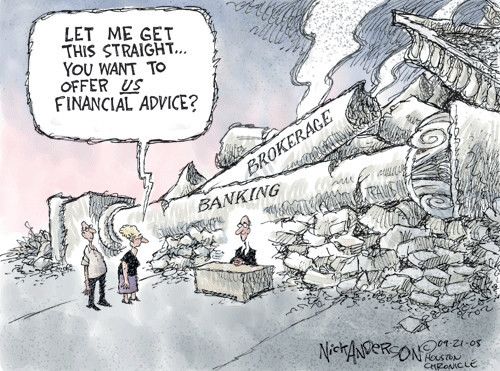The three biggest achievements of the Cuban revolution are health, education, and low infant-mortality rates, and that its three biggest failures are breakfast, lunch, and dinner. — Government Worker, Habana, Cuba.
Strategic Logic Quiz
Last week, I promised the greatest business analysis ever done. See here: http://wp.me/p1PgpH-cs
A reader, Logan, gave a strong hint for the solution. Before I post the answer, let’s try another question.
Use Munger’s multidisciplinary thinking or Professor Greenwald’s strategic logic to find an answer to the following problem: The Cuban dictatorship collapses and property rights are restored. You have been given the job to develop a business in Cuba with barriers to entry. You must build a business with the strongest combination of competitive advantages. What business would you choose, why and how would you build barriers to entry? How many advantages can you design for development? If you come up with a sensible plan, you will be given $5 million to start.
Two hints: the business can not be involved in cigars or tourism (like hotels or restaurants). A reading of Cuban business history would lead you to an answer, but I presume many have little knowledge of that history.
Tip: A great way to learn about businesses is to read corporate history or the biographies of business leaders. You will sense how a business grows and develops advantages or loses them.
Austrian Economic Review
What are the markets telling us? Deflation has gold and commodities selling off? I don’t think so. Never predict, but here goes………The Fed and the ECB both have the ability to print money and exchange good collateral for bad collateral with banks. What do central banks know how to do? What motivates central bankers? What are the monetary aggregates telling us?
The dollar is weak: http://scottgrannis.blogspot.com/2011/12/dollar-is-still-very-weak.html#links
Keeping an eye on longer-term investors: Insiders are long-term bullish. http://www.marketwatch.com/story/those-bullish-corporate-insiders-2011-12-07
Place facts into a coherent theory
How do we place facts into context? A rap video of Hayek (Austrian Economist) vs. Keynes (An Interventionist)http://www.youtube.com/watch?v=d0nERTFo-Sk
Bernanke vs. the Austrians during the housing bubble:http://www.youtube.com/watch?feature=player_embedded&v=MnekzRuu8wo
What confidence do you have in Bernanke’s planning ability or in bureaucrats controlling our monetary system?
Inflation today: http://www.economicpolicyjournal.com/2011/12/exposed-why-krugman-smoothed-inflation.html
Note the unusual bond yields.http://scottgrannis.blogspot.com/2011/12/bond-yields-are-out-of-whack.html
MF Global is an example of our Ponzi financial system in action: http://lewrockwell.com/french/french143.html
Murray Rothbard wrote, “If no business firm can be insured, then an industry consisting of hundreds of insolvent (banks) firms is surely the last institution about which anyone can mention ‘insurance’ with a straight face. ‘Deposit insurance’ is simply a fraudulent racket, and a cruel one at that, since it may plunder the life savings and the money stock of the entire public.”
Our Media
The videos below reinforce the need to read original documents or to speak to people who are actually involved in an industry or sent to war rather than believing our press. Excuse the political connotations.
A savage spoof of the media and our government that hits closer to the truth than I would like! Hitler reacts to Ron Paul’s Rise in the Polls: http://www.youtube.com/watch?src_vid=fFbc3sHl3Ic&annotation_id=annotation_162843&feature=iv&v=5ScPXDRcIfc
War and the importance of understanding history: http://www.youtube.com/watch?v=I8NhRPo0WAo&feature=youtu.be Note that many against war are the folks who actually have experienced it.
Entrepreneurial Alertness
A podcast on finding opportunity: http://www.economicpolicyjournal.com/search/label/The%20Robert%20Wenzel%20Show Scroll down to the second or third show.
Adapt or Die: Be Creative and Sell your Skills http://www.lewrockwell.com/north/north1073.html
Old (2007) but detailed Longleaf Interview: http://www.palmerstongroup.com/articles/2007july/interview.html
Interesting Blog from a former Wall Streeter: Reading Fiction will Make You a Better Investor: http://interloping.com/
Have a great day and weekend.


